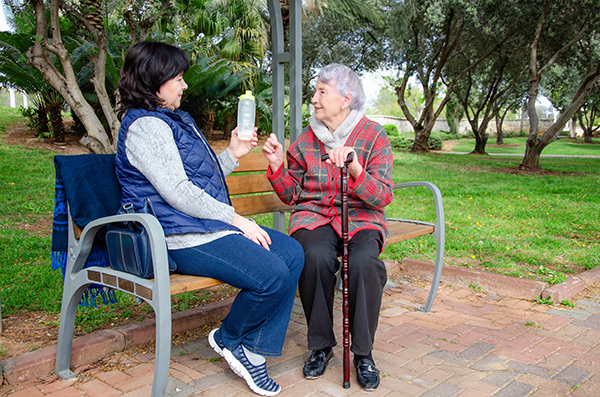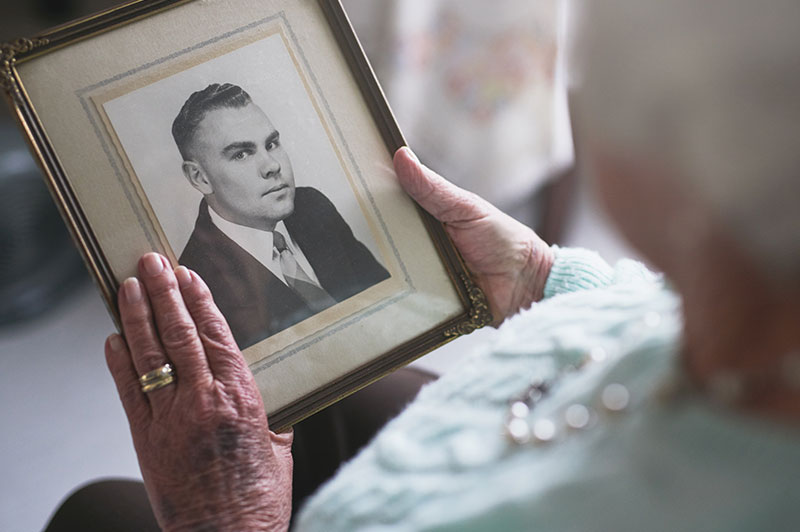Avoid These 5 Ways That Worsen the Symptoms of Alzheimer’s


It’s important to be aware of several key triggers that can worsen the symptoms of Alzheimer’s.
While there are a number of commonalities, the symptoms of Alzheimer’s can impact each individual differently. Our highly trained dementia caregivers know, for instance, that while one person may appreciate being outdoors, another may be overwhelmed by so much sensory input and prefer a quieter indoor environment. One may appreciate a morning bath routine, while a dose of resourcefulness is necessary to help a different individual maintain good hygiene.
We also realize there are certain triggers that may often worsen the challenging aspects of Alzheimer’s disease. Family care providers should be particularly careful to avoid the following:
- Dehydration. Someone diagnosed with dementia might not be able to identify when they are thirsty, or may refuse when offered fluids. It’s vital to ensure appropriate hydration in order to avoid added weakness and confusion. Plain water is best, but if rejected, try flavored waters, along with various kinds of cups or bottles.
- Isolation. Individuals diagnosed with dementia experience loneliness as much as anyone else, and without having sufficient social stimulation, could become progressively agitated or paranoid. A caregiver from Hired Hands Homecare, the top home care company in Santa Rosa, CA and the surrounding areas, can offer appropriate socialization, giving members of the family a much-needed break from care.
- Sugar. It’s not unusual for people with Alzheimer’s disease to have an increased appetite for cookies, cake, and other sugary snacks, but it may also lead to greater irritability. Try offering a number of healthier choices, including fruit, yogurt, or sugar-free treats.
- Sleeping pills. With the difficulties of common sleep problems including sundowning, it can be tempting for family members to offer sleeping pills to a loved one with Alzheimer’s to encourage a more restful night. Yet they increase the risk for falls and other injuries and add to fogginess and confusion. Consult with the senior’s doctor for a natural sleep-inducing alternative.
- TV. Be mindful of what’s on television; shows that contain crime, violence, and even the nightly news can instill worry and paranoia in those with dementia. It may be a good idea to leave the TV off and engage the senior in alternate activities, including games, puzzles, reading together, exercising, and reminiscing – or choose to view movies you have carefully evaluated to make certain content is suitable.
Every member of our dementia caregiving team is thoroughly trained and experienced in providing person-centered, thoughtful home care services to effectively manage the difficulties inherent with Alzheimer’s, and to improve wellbeing. Call us at (866) 940-4343 or contact us online for additional dementia care tips, and for an in-home consultation to learn how our specialized in-home Alzheimer’s care can make life brighter for your senior loved one.








Leave a Reply